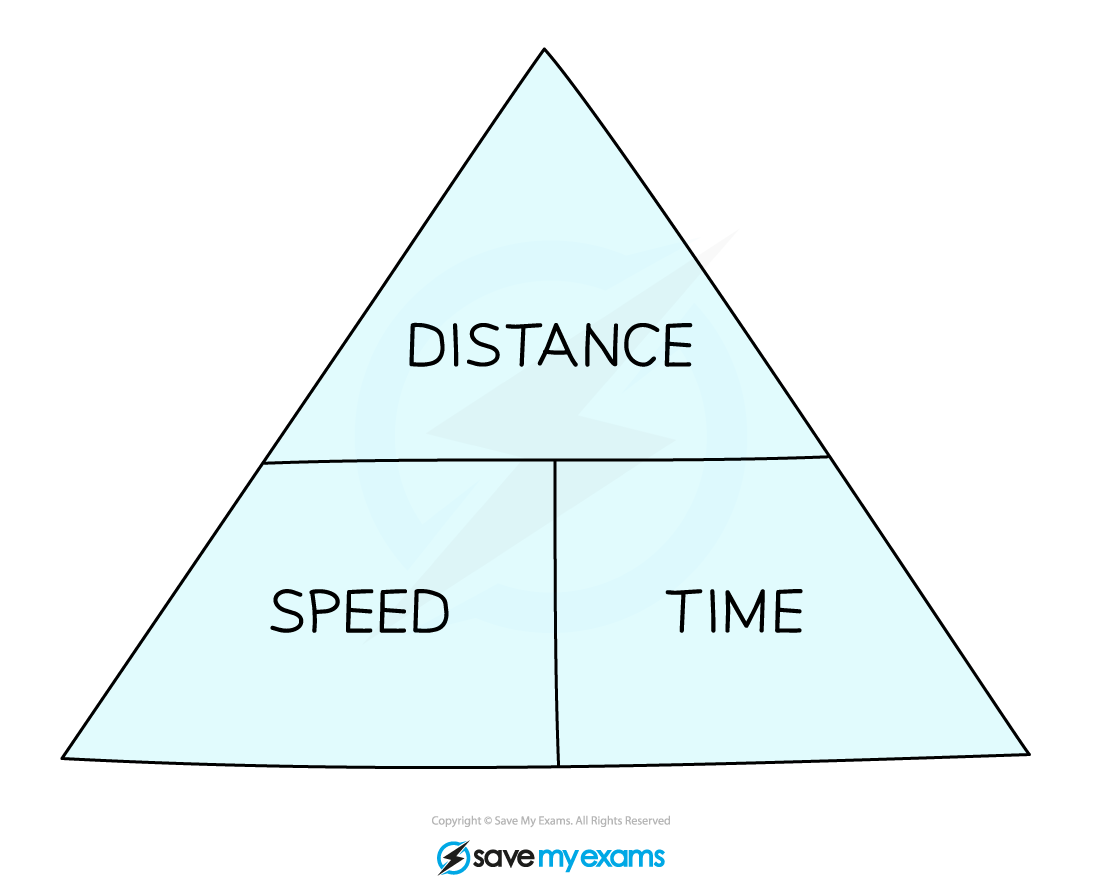Speed (Cambridge (CIE) IGCSE International Maths): Revision Note
Exam code: 0607
Did this video help you?
Speed
What is speed?
Speed is equal to distance divided by time
Speed is commonly measured in metres per second (m/s) or kilometres per hour (km/h)
The units indicate speed is distance per time
'Speed' (in this formula) means 'average speed'
The formula can be rearranged to
In harder problems there are often two journeys or two parts to one longer journey
What is a formula triangle?
A formula triangle shows the relationship between the different measures in a compound formula
They can be useful if you are less confident with rearranging formulas
For Speed, Distance and Time:

If you are calculating a variable on the top of the triangle, multiply the two variables on the bottom
For example,
If you are calculating a variable on the bottom of the triangle, divide the top by the other variable on the bottom
For example,
and
Examiner Tips and Tricks
Look out for a mixture of units
Time can be given as minutes but common phrases like 'half an hour' (30 minutes) could also be used in the same question
Any mixed units should be those in common use and easy to convert, e.g. m to km etc
Worked Example
(a) A runner completes a 10 km race in three quarters of an hour.
Find the average speed of the runner in metres per second.
Round your answer to 3 significant figures.
As the answer must be in metres per second, convert the distance to metres, and the time to seconds
Multiply by 1000 to convert km to metres
10 km = 10 000 m
Write the time in minutes, you could calculate this as
Three quarters of an hour = 0.75 hrs = 45 mins
Multiply by 60 to convert minutes to seconds
45 × 60 = 2 700 seconds
Use the formula
Round to 3 significant figures
3.70 m/s
(b) A sprinter's average speed when running 100 m is 8.85 m/s.
Calculate the total time taken in seconds for the sprinter to run 100 m.
Round your answer to the nearest hundredth of a second.
The units are already in metres, and metres per second, so do not need converting to reach an answer in seconds
Use the formula
Rearrange to make the time the subject
Multiply both sides by time, and then divide both sides by the speed
Round to the nearest hundredth of a second (2 decimal places)
11.30 s

Unlock more, it's free!
Did this page help you?